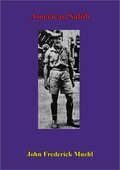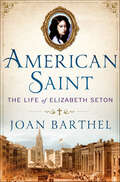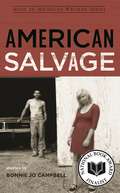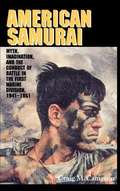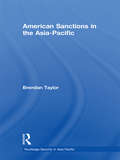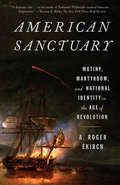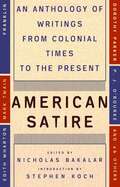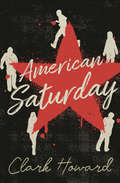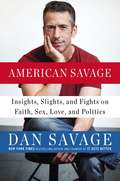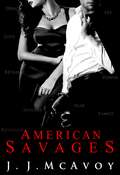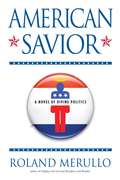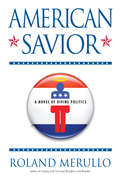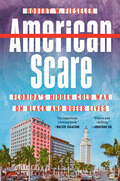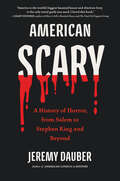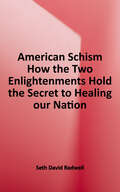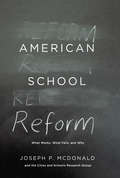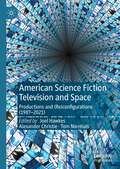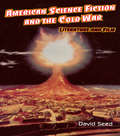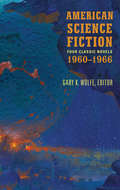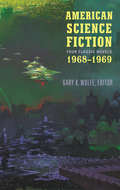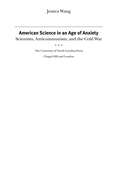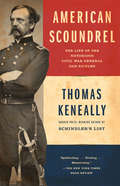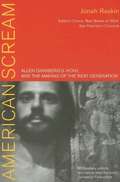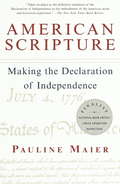- Table View
- List View
American Sahib
by John MuehlAN AMERICAN MEDIC ATTACHED TO THE BRITISH INDIAN ARMY DURING WORLD WAR TWO RECOUNTS HIS EXPERIENCES.John Muehl saw India as few Americans, few Britons, and few Indians ever have the chance to see it. He was with the American Field Service, attached to the British Indian Army, and wore British uniform. "I could travel the length and breadth of the country, with the blessing of the Raj but without its stigma. I was a 'pukah sahib' in the Poona Club, a tommy in the Lady Lumley Canteen, an American tourist in Gorpuri Bazaar, and simply a friend to Raman and Singh." He mingled with the Sikhs and Gurkhas and other Indians who fought under the British not for love of empire or for hate of Japan but for their board and keep. "Nay British sahib-American sahib," he would say when Indians showed reluctance to talk with him. Admiration for America was great enough-though it turned to suspicion by the end of this war in which America seemed to make common cause with the Raj-so that this phrase usually broke down the barrier. And AMERICAN SAHIB is John Muehl's journal of a year. It is an inside story of appalling poverty, famine, and political ferment among the Indians, and of bungling, brutality, and hypocrisy on the part of the British rulers. Fortunately for the reader, the dark picture is lightened with humor and with a sense of the patient philosophy that sustains India. This young American's first shock came when he learned through personal conversations in exclusive officer's clubs that the Briton in India does not conceive himself as graciously bearing the white man's burden, as the propaganda would have us believe. In private, the Briton admits almost boastfully that India's function is to serve as a source of raw materials for England and a market for her products, and if she is ground down in the process that is her worry...Through John Muehl's eyes and ears, we too can see India and hear its people.
American Saint: The Life of Elizabeth Seton
by Joan Barthel“A fascinating biography” of Elizabeth Seton, who shocked high society by converting to Catholicism—a faith that was illegal in New York when she was born (Booklist).In this riveting biography of the first American saint, Joan Barthel tells the mesmerizing story of a woman whose life encompassed wealth and poverty, passion and sorrow, love and loss. Elizabeth was born into a prominent New York City family in 1774—when Catholicism was illegal and priests in the city were arrested, and sometimes hanged. Her father was the chief health officer for the Port of New York, and she lived down the block from Alexander Hamilton. She danced at George Washington’s sixty-fifth Birthday Ball in cream slippers, monogrammed. When Elizabeth and her husband sailed to Italy in a doomed attempt to cure his tuberculosis, she and her family were quarantined in a damp dungeon. And when, after she was widowed, Elizabeth became a Catholic, she was so scorned that people talked of burning down her house. American Saint is the inspiring story of a brave woman who forged the way for other women who followed and who made a name for herself in a world entirely ruled by men. Founder of the Sisters of Charity, she resisted male clerical control of her religious order—and she also started America’s first Catholic school, laying the foundation of an educational system that would help countless children thrive in a new nation.“Compelling . . . an exquisite story of Seton’s inspiring life. . . . Readers interested in Catholic history and U.S. history should not overlook this important biography.” —Publishers Weekly“Barthel is a fine and insightful observer of this larger-than-life woman who was so far ahead two hundred years ago that we’re still catching up with her.” —Gloria SteinemIncludes a foreword by Maya Angelou
American Salvage: American Salvage (Made in Michigan Writers Series)
by Bonnie Jo CampbellNew from award-winning Michigan writer Bonnie Jo Campbell, American Salvage is rich with local color and peopled with rural characters who love and hate extravagantly. They know how to fix cars and washing machines, how to shoot and clean game, and how to cook up methamphetamine, but they have not figured out how to prosper in the twenty-first century. Through the complex inner lives of working-class characters, Campbell illustrates the desperation of post-industrial America, where wildlife, jobs, and whole ways of life go extinct and the people have no choice but to live off what is left behind.The harsh Michigan winter is the backdrop for many of the tales, which are at turns sad, brutal, and oddly funny. One man prepares for the end of the world-scheduled for midnight December 31, 1999-in a pole barn with chickens and survival manuals. An excruciating burn causes a man to transcend his racist and sexist worldview. Another must decide what to do about his meth-addicted wife, who is shooting up on the other side of the bathroom door. A teenaged sharpshooter must devise a revenge that will make her feel whole again. Though her characters are vulnerable, confused, and sometimes angry, they are also resolute. Campbell follows them as they rebuild their lives, continue to hope and dream, and love in the face of loneliness.Fellow Michiganders, fans of short fiction, and general readers will enjoy this poignant and affecting collection of tales.
American Samurai: Myth and Imagination in the Conduct of Battle in the First Marine Division 1941-1951
by Craig CameronA study of the cultural myths and imagination concerning the Marine Corps before, during and after World War Two and the influence these had on the war.
American Sanctions in the Asia-Pacific (Routledge Security in Asia Pacific Series #Vol. 14)
by Brendan TaylorSanctions are a persistent – many would argue increasingly central – component of American efforts to shape foreign policy outcomes in the Asia-Pacific. The use of sanctions in the context of two of the most pressing regional security issues currently on Washington’s radar – the ongoing North Korean nuclear crisis and the management of China’s emergence – clearly reaffirms this pattern. This book provides the first comprehensive treatment of US sanctions policy in the Asia-Pacific. Using the Bill Clinton and George W. Bush presidencies as a basis for comparison, it examines nine prominent episodes involving the US use of sanctions toward countries in this economically and strategically vital part of the world. In each case it addresses the reasons why sanctions were employed in the first place, the precise nature of sanctions and how they operated in practice, before evaluating their effectiveness. Finally, it identifies common trends that emerge from this analysis and draws out practical implications for US sanctions policy, in particular when and how the US can – and cannot – optimally use sanctions in an Asia-Pacific context.
American Sanctuary: Mutiny, Martyrdom, and National Identity in the Age of Revolution
by A. Roger EkirchFrom “one of the most wide-ranging and imaginative historians in America today; there is no one else quite like him in the profession” (Gordon S. Wood)—a dazzling and original work of history. A. Roger Ekirch’s American Sanctuary begins in 1797 with the bloodiest mutiny ever suffered by the Royal Navy—on the British frigate HMS Hermione, four thousand miles from England’s shores, off the western coast of Puerto Rico. In the midst of the most storied epoch in British seafaring history, the mutiny struck at the very heart of military authority and at Britain’s hierarchical social order. Revolution was in the air: America had won its War of Independence, the French Revolution was still unfolding, and a ferocious rebellion loomed in Ireland, with countless dissidents already arrested. Most of the Hermione mutineers had scattered throughout the North Atlantic; one of them, Jonathan Robbins, had made his way to American shores, and the British were asking for his extradition. Robbins let it be known that he was an American citizen from Danbury, Connecticut, and that he had been impressed into service by the British. John Adams, the Federalist successor to Washington as president, in one of the most catastrophic blunders of his administration, sanctioned Robbins’s extradition, according to the terms of the Jay Treaty of 1794. Convicted of murder and piracy by a court-martial in Jamaica, Robbins was sentenced by the British to death, hauled up on the fore yardarm of the frigate Acasta, blindfolded with his hands tied behind his back, and hanged. Adams’s miscalculation ignited a political firestorm, only to be fanned by news of Robbins’s execution without his constitutional rights of due process and trial by jury. Thomas Jefferson, then vice president and leader of the emergent Republican Party, said, “No one circumstance since the establishment of our government has affected the popular mind more.” Congressional Republicans tried to censure Adams, and the Federalist majority, in a bitter blow to the president, were unable to muster a vote of confidence condoning Robbins’s surrender. American Sanctuary brilliantly lays out in full detail the story of how the Robbins affair and the presidential campaign of 1800 inflamed the new nation and set in motion a constitutional crisis, resulting in Adams’s defeat and Jefferson’s election as the third president of the United States. Ekirch writes that the aftershocks of Robbins’s martyrdom helped to shape the infant republic’s identity in the way Americans envisioned themselves. We see how the Hermione crisis led directly to the country’s historic decision to grant political asylum to refugees from foreign governments—a major achievement in fulfilling the resonant promise of American independence, as voiced by Tom Paine, to provide “an asylum for mankind
American Satire: An Anthology of Writings from Colonial Times to the Present
by Nicholas BakalarThis entertaining, informative collection covers the best of American satire—from Ben Franklin's cutting satiric attacks to Nathaniel Hawthorne's Celestial Railroad, Calvin Trillin's Old Marrieds, Mark Twain's American Abroad to P.J. O'Rourke's The Innocents Abroad—Updated, a late 20th-century take on Twain's classic piece. "Entertaining and satisfying...An excellent introduction."—Amazon.com.
American Saturday
by Clark HowardA &“vividly written&” account of the bloody 1971 San Quentin riot by the Edgar Award–winning author of Zebra and Six Against the Rock (Kirkus Reviews). American Saturday traces one man&’s path from the slums of Chicago to the California state prison where he embraced radicalism, was charged for the murder of a corrections officer, and eventually, was gunned down during the violent chaos following a failed escape attempt. This chilling account of an infamous prison riot comes from a writer who has been called &“a superlative storyteller&” (Publishers Weekly). &“The Saturday was August 21, 1971 and the headline read &‘George Jackson, 5 Others Slain in San Quentin.&’ Howard&’s account traces the careers of the inmates and guards whose lives converged and ended that day, but focuses on the pivotal figure of Jackson himself, whose botched escape attempt—just before his scheduled trial in the &‘Soledad Brothers&’ murder case—led to a gory riot in which three guards, two other inmates, and Jackson himself were killed. . . . Extensively researched and vividly written.&” —Kirkus Reviews
American Savage: Insights, Slights, and Fights on Faith, Sex, Love, and Politics
by Dan SavageOn the heels of his Emmy-winning It Gets Better campaign, columnist and provocateur Dan Savage weighs in on such diverse issues as healthcare, gun control, and marriage equality with characteristic straight talk and humor. <P> Dan Savage has always had a loyal audience, thanks to his syndicated sex-advice column "Savage Love," but since the incredible global success of his It Gets Better project-his book of the same name was a New York Times bestseller-his profile has skyrocketed. In addition, he's written for The New York Times, Rolling Stone, The Onion, GQ, The Guardian, Salon. com, and countless other widely read publications. Savage is recognized as someone whose opinions about our culture, politics, and society should not only be listened to but taken seriously. <P> Now, in American Savage, he writes on topics ranging from marriage, parenting, and the gay agenda to the Catholic Church and sex education. .
American Savages (Ruthless People #3)
by J. J. McavoyBetrayed. Melody is nowhere to be found, Liam is in jail, and the Callahan family is cracking, just as Avian Doers, the FBI Director and puppet master behind their downfall, planned.But just because they’re down doesn't mean they’re out. To fight back, Liam and Melody will have to put everything on the line. The kid gloves are coming off, and no one is getting out alive. Nothing will compare to the reign of terror that is about to envelope the entire country. First they were Ruthless, now they are pure Savages. The end is here, and no one is safe…
American Savior: A Novel of Divine Politics
by Roland Merullo[Book Jacket] Roland Merullo's novel American Savior posits an inspired "what if" scenario: What if Jesus, alarmed at how the earth's most powerful nation has lost its spiritual footing and dismayed at how His own teachings have been distorted--used by politicians and religious zealots to turn love into hatred and faith into a call to arms-- returns and announces that he is running for President of the United States? What if He becomes a third-party candidate, is heralded as the Son of God, and not only threatens to disrupt the status quo but poses a serious threat to the already established Democratic and Republican candidates? What would happen? How would the media react? And, more important, how would we react? Narrated by a more than slightly cynical young TV reporter, American Savior puts the reader inside the campaign waged by what is quickly dubbed the Divinity Party and follows Jesus and his modern-day disciples as they travel across the nation making speeches, reaching out to the people, and in the process arousing the ire of those who believe they know God, and who know, most assuredly, that this is not He.
American Savior: A Novel of Divine Politics
by Roland MerulloWhat if Jesus suddenly appeared and announced that he planned to run for President of the United States? Yes, that Jesus. And what if a well-meaning but utterly inexperienced band of disciples not only helped him mount a seat-of-the-pants campaign but also ran it well, getting millions of people to support him and in the process throwing the other two major party candidates—as well as the world's news media—into a frenzy as they scramble to discredit him? Roland Merullo's bitingly clever satirical novel about the state of American politics follows one man's campaign to bring back goodness and kindness (real goodness and kindness this time) in a country that has fallen into a divisive state of fear and hatred. Merullo takes us into the heart of "a nation in grave spiritual danger" as the Son of man sets out to make everyone realize that "politics as usual" is no longer an acceptable alternative. American Savior is a remarkably innovative novel that challenges our perceptions and beliefs while it wags a finger at the folly of our self-righteousness. It is sure to cause controversy among those for whom politics itself has become a kind of religion.
American Scare: Florida's Hidden Cold War on Black and Queer Lives
by Robert W. FieselerA vital exposé for both our history and our present day, American Scare tells the riveting story of how the Florida government destroyed the lives of Black and queer citizens in the twentieth century. In January 1959, Art Copleston was escorted out of his college accounting class by three police officers. In a motel room, blinds drawn, he sat in front of a state senator and the legal counsel for the Florida Legislative Investigation Committee, nicknamed the &“Johns Committee.&” His crime? Being a suspected homosexual. And the government of Florida would use any tactic at their disposal—legal or not—to get Copleston to admit it. Using a secret trove of primary source documents that have been decoded and de-censored for the first time in history, journalist Robert Fieseler unravels the mystery of what actually happened behind the closed doors of an inquisition that held ordinary citizens ransom to its extraordinary powers. The state of Florida would prefer that this history remain buried. But for nearly a decade, the Florida Legislature founded, funded, and supported the Johns Committee—an organization using the cover of communism to viciously attack members of the NAACP and queer professors and students. Spearheaded by Charley Johns, a multi-term politician in a gerrymandered legislature, the Committee was determined to eliminate any threats to the state's white, conservative regime. Fieseler describes the heartbreaking ramifications for citizens of Florida whose lives were imperiled, profiling marginalized residents with compassion and a determination to bring their devasting experiences to light at last. A propulsive, human-centered drama, with fascinating insight into Florida politics, American Scare is a page-turning reckoning of our racist and homophobic past—and its chilling parallels to today.
American Scary: A History of Horror, from Salem to Stephen King and Beyond
by Jeremy Dauber"America is the world's biggest haunted house and American Scary is the only travel guide you need. I loved this book." —Grady Hendrix, New York Times bestselling author of How to Sell a Haunted House and The Final Girl Support GroupFrom the acclaimed author of American Comics comes a sweeping and entertaining narrative that details the rise and enduring grip of horror in American literature, and, ultimately, culture—from the taut, terrifying stories of Edgar Allan Poe to the grisly, lingering films of Jordan Peele America is held captive by horror stories. They flicker on the screen of a darkened movie theater and are shared around the campfire. They blare out in tabloid true-crime headlines, and in the worried voices of local news anchors. They are consumed, virally, on the phones in our pockets. Like the victims in any slasher movie worth its salt, we can&’t escape the thrall of scary stories. In American Scary, noted cultural historian and Columbia professor Jeremy Dauber takes the reader to the startling origins of horror in the United States. Dauber draws a captivating through line that ties historical influences ranging from the Salem witch trials and enslaved-person narratives directly to the body of work we more closely associate with horror today: the weird tales of H. P. Lovecraft, the lingering fiction of Shirley Jackson, the disquieting films of Alfred Hitchcock, the up-all-night stories of Stephen King, and the gripping critiques of Jordan Peele. With the dexterous weave of insight and style that have made him one of America&’s leading historians of popular culture, Dauber makes the haunting case that horror reveals the true depths of the American mind.
American Schism: How the Two Enlightenments Hold the Secret to Healing our Nation
by Seth David RadwellAn enlightened exploration of history to unite a deeply divided America. The political dialogue in America has collapsed. Raw and bitter emotions such as anger and resentment have crowded out any logical debate. In this investigative tracing of our nation's divergent roots, author Seth David Radwell explains that only reasoned analysis and historical perspective can act as salves for the irrational political discourse that is raging at present. Two disparate Americas have always coexisted, and Radwell discovered that the surprising origin of these dual Americas was not an Enlightenment, but two distinct Enlightenments that have been fiercely competing since the founding of our country. Radwell argues that it is only by embracing Enlightenment principles that we can build a civilized, progressive, and tolerant society. American Schism reveals - the roots of the rifts in America since its founding and what is really dividing red and blue America; - the core issues that underlie all of today's bickering; - a detailed, effective plan to move forward, commencing what will be a long process of repair and reconciliation. Seth David Radwell changes the nature of the political debate by fighting unreason with reason, allowing Americans to firmly ground their differing points of view in rationality.
American School Reform: What Works, What Fails, and Why
by Mark Smylie Joseph P. Mcdonald Jolley Bruce Christman Thomas B. Corcoran Norm Fruchter Milbrey W. Mclaughlin Gordon Pradl Gabriel Reich Joan Talbert.Dissecting twenty years of educational politics in our nation’s largest cities, American School Reform offers one of the clearest assessments of school reform as it has played out in our recent history. Joseph P. McDonald and his colleagues evaluate the half-billion-dollar Annenberg Challenge#151;launched in 1994#151;alongside other large-scale reform efforts that have taken place in New York, Chicago, Philadelphia, and the San Francisco Bay Area. They look deeply at what school reform really is, how it works, how it fails, and what differences it can make nonetheless. McDonald and his colleagues lay out several interrelated ideas in what they call a theory of action space. Frequently education policy gets so ambitious that implementing it becomes a near impossibility. Action space, however, is what takes shape when talented educators, leaders, and reformers guide the social capital of civic leaders and the financial capital of governments, foundations, corporations, and other backers toward true results. Exploring these extraordinary collaborations through their lifespans and their influences on future efforts, the authors provide political hope#151;that reform efforts can work, and that our schools can be made better.
American Schools: The $100 Billion Challenge
by Dwight Allen Jr. William H. Cosby Jr.Exchanging comedy for community activism, Bill Cosby teams up with Dwight Allen, Eminent Professor of Education Reform at Old Dominion University, to issue a challenge to the federal government and the new captains of industry: produce one hundred billion dollars and reform, revamp, and reinvent our schools. Together, Cosby and Allen do more than discuss the problems- the crumbling buildings, flagging test scores, and failing students- they offer concrete solutions, outlining a point-by-point plan for putting dot-com dollars to work.
American Science Fiction Television and Space: Productions and (Re)configurations (1987-2021)
by Joel Hawkes Alex Christie Tom NienhuisThis collection reads the science fiction genre and television medium as examples of heterotopia (and television as science fiction technology), in which forms, processes, and productions of space and time collide – a multiplicity of spaces produced and (re)configured. The book looks to be a heterotopic production, with different chapters and “spaces” (of genre, production, mediums, technologies, homes, bodies, etc), reflecting, refracting, and colliding to offer insight into spatial relationships and the implications of these spaces for a society that increasingly inhabits the world through the space of the screen. A focus on American science fiction offers further spatial focus for this study – a question of geographical and cultural borders and influence not only in terms of American science fiction but American television and streaming services. The (contested) hegemonic nature of American science fiction television will be discussed alongside a nation that has significantly been understood, even produced, through the television screen. Essays will examine the various (re)configurations, or productions, of space as they collapse into the science fiction heterotopia of television since 1987, the year Star Trek: Next Generation began airing.
American Science Fiction and the Cold War: Literature and Film (America In The 20th/21st Century Ser. #Vol. 3)
by David SeedFirst Published in 1999. Routledge is an imprint of Taylor & Francis, an informa company.
American Science Fiction: Four Classic Novels 1960-1966 (LOA #321)
by Poul Anderson Clifford D. Simak Daniel Keyes Roger ZelasnyIn a deluxe collector's edition hardcover, four classic novels from science fiction's most transformative decade, including the landmark Flowers for AlgernonThis volume, the first of a two-volume set gathering the best American science fiction from the tumultuous 1960s, opens with Poul Anderson's immensely popular The High Crusade, in which aliens planning to conquer Earth land in Lincolnshire during the Hundred Years' War. In Clifford Simak's Hugo Award-winning Way Station, Enoch Wallace is a spry 124-year-old Civil War veteran whose lifelong job monitoring the intergalactic pit stop inside his home is largely uneventful--until a CIA agent shows up and Cold War hostilities threaten the peaceful harmony of the Galactic confederation. Daniel Keyes's beloved Flowers for Algernon, winner of the Nebula Award and adapted as the Academy Award-winning movie Charly, is told through the journal entries of Charlie Gordon, a young man with severe learning disabilities who is the test subject for surgery to improve his intelligence. And in the postapocalyptic earthscape of Roger Zelazny's Hugo Award-winning . . . And Call Me Conrad (also published as This Immortal) Conrad Nomikos reluctantly accepts the responsibility of showing the planet to the governing extraterrestrials' representative and protecting him from rebellious remnants of the human race. Using early manuscripts and original setting copy, this Library of America volume restores the novel to a version that most closely approximates Zelazny's original text.
American Science Fiction: Four Classic Novels 1968-1969 (LOA #322)
by Joanna Russ Jack Vance Samuel R. Delany R. A. LaffertyFour mind-bending novels from science fiction's most transformative decade in a deluxe collector's edition hardcover, including two long out-of-print classicsIn this second volume of a two-volume set gathering the best American science fiction from the tumultuous 1960s, R. A. Lafferty's quirky and utterly original Past Master, an unjustly neglected classic, imagines Sir Thomas More transported to the colony Astrobe in the year 2535, where he is made president of a future Utopia. In Picnic on Paradise, Joanna Russ presents her indelible heroine, Alyx, who is hired to protect a group of tourists in a hostile alien world. Samuel R. Delany's proto-cyberpunk space opera Nova, reprinted here for the first time in a text corrected by the author, combines the pacing of a revenge story with the arc of a grail-quest legend. Jack Vance's dystopian thriller Emphyrio is the coming-of-age story of Ghyl, who has been raised in a world barring the use of automation but has a strong sense of subversive individualism. The novel has been restored to the author's original text, without later editorial interventions.
American Science in an Age of Anxiety
by Jessica WangNo professional group in the United States benefited more from World War II than the scientific community. After the atomic bombings of Hiroshima and Nagasaki, scientists enjoyed unprecedented public visibility and political influence as a new elite whose expertise now seemed critical to America's future. But as the United States grew committed to Cold War conflict with the Soviet Union and the ideology of anticommunism came to dominate American politics, scientists faced an increasingly vigorous regimen of security and loyalty clearances as well as the threat of intrusive investigations by the notorious House Committee on Un-American Activities and other government bodies.This book is the first major study of American scientists' encounters with Cold War anticommunism in the decade after World War II. By examining cases of individual scientists subjected to loyalty and security investigations, the organizational response of the scientific community to political attacks, and the relationships between Cold War ideology and postwar science policy, Jessica Wang demonstrates the stifling effects of anticommunist ideology on the politics of science. She exposes the deep divisions over the Cold War within the scientific community and provides a complex story of hard choices, a community in crisis, and roads not taken.
American Scoundrel: The Life of the Notorious Civil War General Dan Sickles
by Thomas KeneallyOn the last Sunday of February 1859, Dan Sickles, a charming young congressman from New York, murdered his good friend Philip Barton Key (son of Francis Scott Key)–who was also his wife’s lover–in Washington’s Lafayette Square. The shooting took place directly across the street from the White House, the home of Sickles’s friend and protector, President James Buchanan. Sickles turned himself in; political friends in New York’s Tammany Hall machinery, including the dynamic criminal lawyer James Brady, quickly gathered around. While his beautiful young wife was banned from public life and shunned by society, Dan Sickles was acquitted. American Scoundrel is the extraordinary story of this powerful mid-nineteenth century politician and inveterate womanizer, whose irresistible charms and rock-solid connections not only allowed him to get away with murder — literally — but also paved the way to a stunning career. Once free to resume his life, Dan Sickles raised a regiment for the Union political elite and went on to become a general in the army, rising to the rank of brigadier general and commanding a flank at the Battle of Gettysburg in a maneuver so controversial it is still argued over by scholars today. After losing a leg in that battle, Sickles fought on and after the war became military governor of South Carolina, and later was named minister to Spain, where he continued astonishingly to conduct his amorous assignations. With great brio and insight — and a delight in bad behavior — Thomas Keneally has brought to light a tale of American history that resonates with uncomfortable truths about our politics, ethics, and morality.
American Scream: Allen Ginsberg's Howl and the Making of the Beat Generation
by Jonah RaskinBiography of Allen Ginsberg, best known for his poem Howl, the emblem of the Beat Generation.
American Scripture: Making the Declaration of Independence
by Pauline MaierPauline Maier shows us the Declaration as both the defining statement of our national identity and the moral standard by which we live as a nation. It is truly "American Scripture," and Maier tells us how it came to be -- from the Declaration's birth in the hard and tortuous struggle by which Americans arrived at Independence to the ways in which, in the nineteenth century, the document itself became sanctified.Maier describes the transformation of the Second Continental Congress into a national government, unlike anything that preceded or followed it, and with more authority than the colonists would ever have conceded to the British Parliament; the great difficulty in making the decision for Independence; the influence of Paine's []Common Sense[], which shifted the terms of debate; and the political maneuvers that allowed Congress to make the momentous decision.In Maier's hands, the Declaration of Independence is brought close to us. She lets us hear the voice of the people as revealed in the other "declarations" of 1776: the local resolutions -- most of which have gone unnoticed over the past two centuries -- that explained, advocated, and justified Independence and undergirded Congress's work. Detective-like, she discloses the origins of key ideas and phrases in the Declaration and unravels the complex story of its drafting and of the group-editing job which angered Thomas Jefferson.Maier also reveals what happened to the Declaration after the signing and celebration: how it was largely forgotten and then revived to buttress political arguments of the nineteenth century; and, most important, how Abraham Lincoln ensured its persistence as a living force in American society. Finally, she shows how by the very act of venerating the Declaration as we do -- by holding it as sacrosanct, akin to holy writ -- we may actually be betraying its purpose and its power.From the Hardcover edition.
